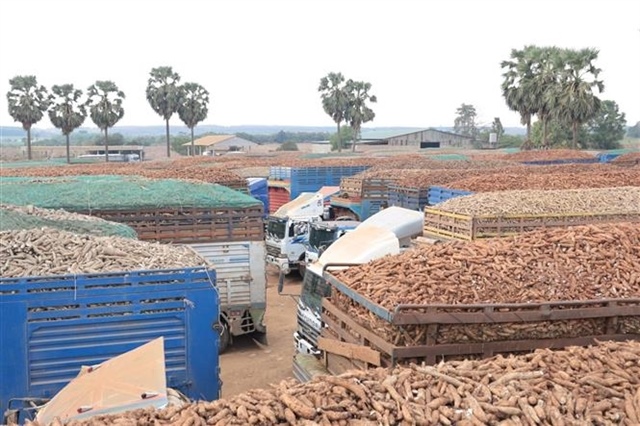Chinese goods bearing ‘made in Vietnam’ labels a threat to domestic production: industry insiders
Chinese goods bearing ‘made in Vietnam’ labels a threat to domestic production: industry insiders
Vietnam’s Ministry of Trade and Industry has issued a warning about products made overseas that are wrongly labeled as ‘made in Vietnam’ in order to enjoy favorable tax when exported to a third country, which not only hurts the reputation of authentic Vietnamese products but also subjects local goods to trade defense lawsuits.

The most common origin of such products is China, which shares its southern border with Vietnam through which Chinese goods are often headed southward for labeling before being exported to a third nation.
In the context of an ongoing trade war between China and the U.S., it is even more likely that this illegal activity will only get more rampant, according to Diep Thanh Kiet, vice-president of the Vietnam Leather, Footwear and Handbag Association (LEFASO).
In many cases, Vietnamese enterprises are not fully aware that they are abetting the offense, Kiet said.
“When you look at the handbag industry, for example, an item is only considered domestically produced if all the manufacturing steps involved, including cutting, sewing and packaging, are done in Vietnam,” Kiet explained.
“If a [Vietnamese] enterprise imports pre-cut materials from China, sews and packages them, the finished items are not considered ‘made in Vietnam’,” he added.
Many local businesses are not aware that by labeling such products with ‘made in Vietnam’ tags, they are involving themselves in illegal transshipment activities, the vice-president said.
Some Chinese exporters ship finished items to Vietnam for labeling, or even invest in local factories for their manufacturing, using ingredients imported from China to avoid heavy taxes imposed on Chinese exports.
The cost of building a medium-d handbag factory in Vietnam is only around US$200,000, a breeze for Chinese companies considering the immense benefit it brings, Kiet said.
In other cases, Vietnamese companies intentionally purchase from China and re-label the products as if they were domestically produced because it is hugely more profitable to do so than to manufacture everything from scratch, according to Ly Thanh Sinh, general director of a Ho Chi Minh City-based garment company.
Importing from China can cost half as much as manufacturing, so it is understandable that Vietnamese companies are enthused by the prospects, Sinh said.
“Fake labels of even the most famous fashion brands can be bought from most major wholesale garment markets in Ho Chi Minh City,” Sinh said.
According to Sinh, “only the company” knows if it iss selling Chinese-made items, as the activity is rarely discovered.
Grave consequences
Tran Thanh Hai, deputy director of Vietnam’s Department of Exports and Imports, said the fraudulent labeling of foreign goods as Vietnam-made not only negatively affects individual products but also has grave consequences for domestic production and damages the reputation and competitiveness of Vietnam’s manufacturing industry as a whole.
Some members of international bodies such as the World Trade Organization, of which Vietnam is a member, have already employed trade defense tactics such as launching anti-dumping and anti-subsidy investigations against Vietnam to protect their domestic production as a result of Chinese companies using the Southeast Asian country as a front to get their exports into these markets.
If a violation is found, all Vietnamese goods in the same category are likely to be subject to the same tax rates as Chinese goods, which would hurt exports.
As of November 2018, 19 investigations had been launched against Vietnamese exports by the European Union, Turkey, the U.S., and Brazil, according to statistics from the Department of Exports and Imports.




















